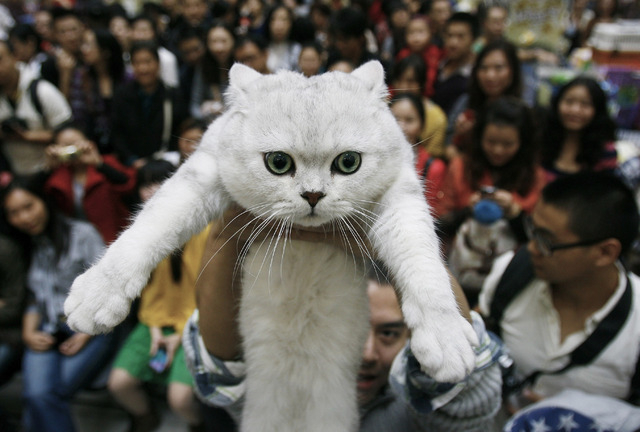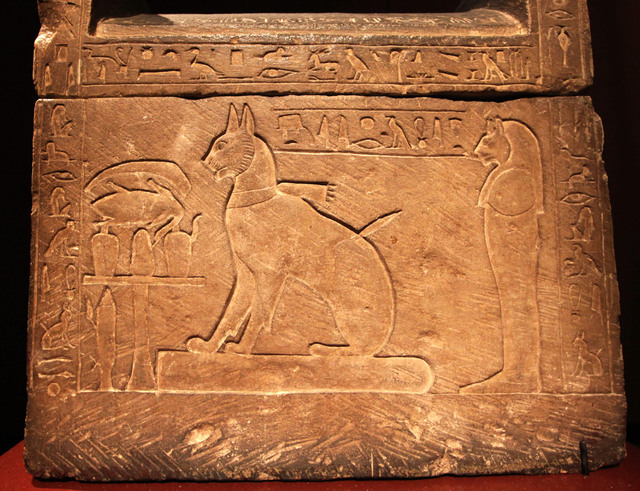Eating mice may explain how felines became tame
NEW YORK — A cat-and-mouse game played out in a Chinese village some 5,300 years ago is helping scientists understand how wild felines transformed into the tame pets we know today.
In fact, it was the cat’s appetite that started it down the path to domestication, scientists believe. The grain stored by ancient farmers was a magnet for rodents. And that drew wild cats into villages to hunt the little critters. Over time, wild cats adapted to village life and became tamer around their human hosts.
That’s the leading theory, anyway, for how wild cats long ago were transformed and became ancestors of today’s house cats. That happened in the Middle East, rather than China. But bones from the Chinese village back up the idea that felines took on the pest-control job in ancient times, says researcher Fiona Marshall of Washington University in St. Louis.
Marshall is an author of a report on the fossil research, published online Monday by the Proceedings of the National Academy of Sciences.
The study, focused on an agricultural village in northern China, comes from a poorly understood time in the history of cats. The first evidence of domesticated cats comes much later, in Egyptian artwork from about 4,000 years ago.
So what went on in that village?
Researchers found signs that rodents were threatening the village grain supply. Storage vessels were designed to keep them out, and rodents had burrowed into a grain-storage pit.
In the ancient feline bones, chemical signatures indicated that the cats had eaten animals that in turn had fed on millet, a grain crop known to be harvested by the villagers. So apparently, the cats were indeed going after the rodents.
It’s not yet clear whether the cats were from a local wild population, or were already domesticated and had been brought in from elsewhere, Marshall said. Either way, it shows that ancient cats filled the niche at the heart of the hypothesis about how domestication began, she said.
Greger Larson of Durham University in England called the new work “an important step forward.” Few studies have focused on how cats became domesticated, in contrast to dogs, pigs and sheep, he said.


















